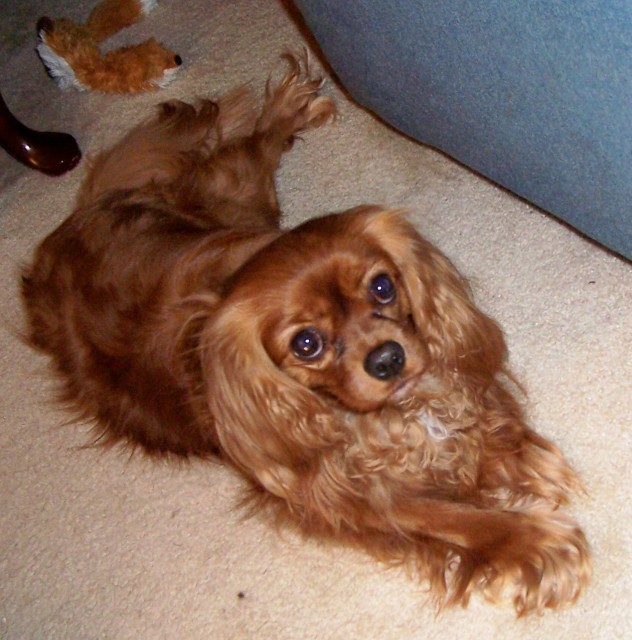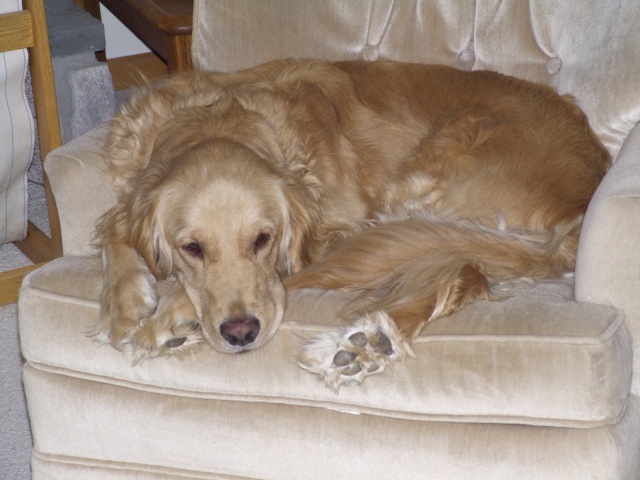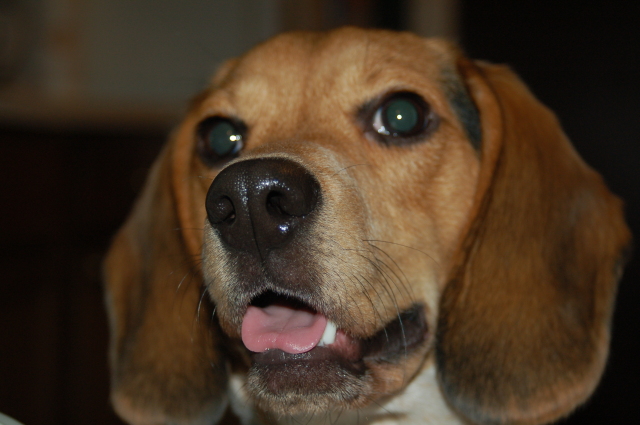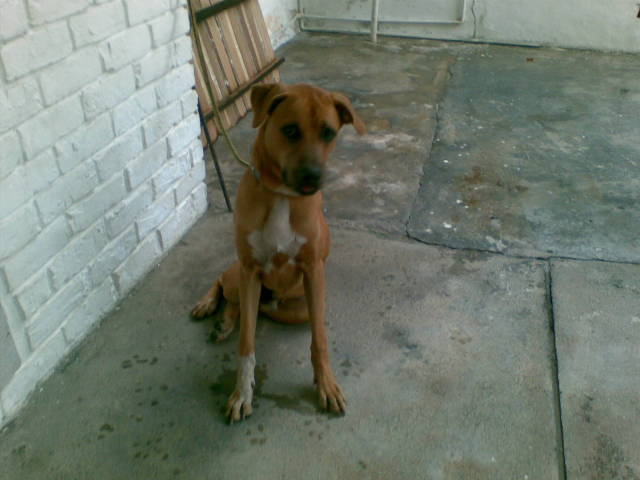QuestionHello, I recently emailed you a question and loved your answer and now if you wouldnt mind, I have a follow up question.
I have a 1 year old male Boston Terrier, Brutus. We got Brutus when he was 12 weeks old from a breeder in Texas (whom I know little about)
Bru was neutered at 6mos and is a healthy dog.
He is an unusual looking Boston in that he is Chocolate brown and white, and tall and thinner then most Bostons.
Very athletic.
I had origninally written you about Brutus's dog park bully behavior.
The behavior was getting worse so I hired a local Dr who specializes in animal psychology and behavior therapy in the area.
I just wanted a second opinion on what he said and what I am doing.
The Dr did an evaluation on Brutus.
He determined Brutus's issue was that he was timid and skittish, not the social dominent, play/aggressive dog we thought he was.
He said Bru was far more timid then most Bostons.
And certain things we were unaware we were doing were reinforcing his timidness.
He said the reason for Brutus bullying submissive/timid dogs in the park is to overcompensate for his own timidness.
We do notice Brutus being very timid around new people, when people he doesnt feel comfortable with want to pet him etc.. (even sometimes when we want to pet him, sometimes hes very into being loved and snuggled, sometimes he seems shy)
Brutus is not timid around other dogs. He does sometimes need to sniff them out first, but he loves to interact with dogs.
The Dr told us we need to bring up Brutus's confidence so he can get rid of his bullying dogs behavior.
The ways he said to do this were:
Make him earn every positive thing (example he gets a command like sit, down, stay, come and when he listens he gets his reward which is food, walks, treats, anything positive that he used to just get automatically, now we have to make him earn)
The Dr said Never pet on the back of his neck.
Never rub belly while laying on his back.
Never use his name in a negative way (say No, not Brutus No! Only use his name for positive)
Never play tug of war.
Praise him when he doesnt do something he used to do (bad)
The Dr gave us a can of citronella spray which is used as a No. It smells strong to dogs and they dont like it, and so far we have only used 2x and Bru now responds to just me picking up the can without even spraying it, he will stop (if he is mouthing our wrist)
We changed collars from one that clanked and made lots of noise (which the Dr said causes stress) to a much quiter one.
We have been doing this kind of stuff with him for about 1 week and so far, hes been very good.
I wanted to ask you if you think this is correct.
And if you can add any tips, that would be helpful.
Also how do I know when Brutus can go back to the dog park and play with other dogs nicely?
He is doing well with what we're doing, but how does all this equate to bullying at the park?
The Dr says we are treating the motive (timid) and not the symptom (bully) and if we treat the motive the symptom will take care of itself.
Sounds logical, but I just wanted a knowledgeable second opinion.
THANKS!!!!
AnswerDear Tamara,
Thanks for the question. First off, I applaud you for seeking a local specialist. There are many methods to address misbehaviors, the real proof is in the results.
The information you shared with me sounds like a good starting point AND the 'nothing free' program can be very effective for changing the owner-pet relationship - thus motivating dogs to cooperate.
Here's an web article about changing the owner-pet relationship written by Debra Horwitz, DVM, Diplomate ACVB.
http://www.vin.com/VINDBPub/SearchPB/Proceedings/PR05000/PR00470.htm
You would have to ask the Dr. when Brutus can play at the park. I suspect he has a phase two portion of his program where you actually teach Brutus about self control and practice interacting with other dogs.
Happy Training!
AT
http://www.howsbentley.com

 Dog light and shadow chasing
Question
Jenni
My 3 year old Cavalier King Charles Span
Dog light and shadow chasing
Question
Jenni
My 3 year old Cavalier King Charles Span
 Agressive 1 yr old mini goldendoodle
Question
our millie
My husband and I got our min
Agressive 1 yr old mini goldendoodle
Question
our millie
My husband and I got our min
 aggression in aging dog
Question
Niko
I have a thirteen year old, female, Samoy
aggression in aging dog
Question
Niko
I have a thirteen year old, female, Samoy
 uncontrollable beagle
Question
max
My beagle is a year and a half. Ive had hi
uncontrollable beagle
Question
max
My beagle is a year and a half. Ive had hi
 dogs behaviour
QuestionMy 8 months old Dusto
QUESTION: My puppy
dogs behaviour
QuestionMy 8 months old Dusto
QUESTION: My puppy